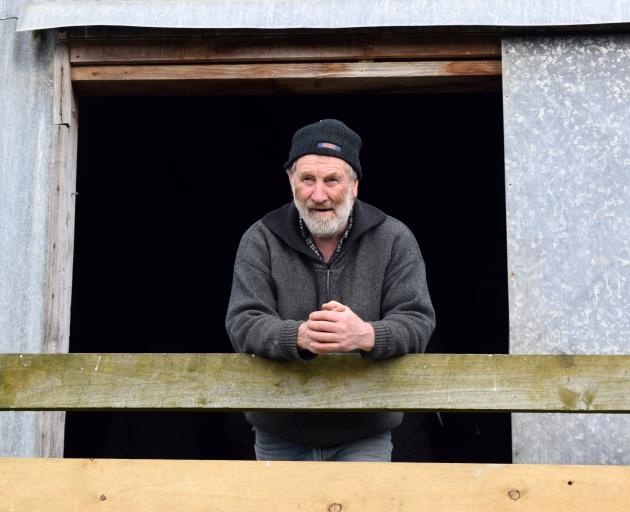Science
New Zealand Study Tracks Facial Eczema Impact on Sheep Farms

A comprehensive study by Beef + Lamb New Zealand is currently analyzing the impact of facial eczema across sheep farms in New Zealand. The research, which focuses on fresh sheep manure, aims to provide valuable insights into the prevalence and effects of this disease on livestock. Led by animal health research principal scientist Cara Brosnahan from Wellington, the study has recently entered its third and final season.
During the second season, researchers detected low levels of facial eczema spores on four sheep farms in Otago. In the first season, spores were also found on one farm in Southland. All grazing livestock, with the exception of horses, risk contracting the disease by ingesting toxic fungal spores found primarily in pasture, particularly ryegrass. When spores are discovered in manure samples, farmers are notified and encouraged to continue submitting samples to monitor spore levels.
The spores become problematic under specific environmental conditions, and livestock may not exhibit clinical signs of infection if they ingest low levels. Signs of infection can include decreased productivity and increased pregnancy scanning failures. Dr. Brosnahan noted that clinical manifestations of the disease have been observed across regions from Northland to the West Coast, with more than half of the manure samples collected in the upper half of the South Island showing clinical signs.
One of the study’s objectives is to examine how factors such as farm elevation, pasture height, and neighboring spore counts may influence the risk of facial eczema. In the final season of the research, confirming these relationships is a priority. Participation in the study is free and straightforward. Farmers collect manure samples biweekly from October to May, with Beef + Lamb providing the kits and covering postage costs. Each participating farmer receives results that can help them understand their risk of facial eczema along with a $40 subsidy on tested faecal egg counts. Additionally, they have the opportunity to be selected for monthly faecal egg counts and larval culture testing.
Dr. Brosnahan emphasized the importance of increased farmer participation, especially for those who have not yet detected facial eczema on their properties. “We need more farmers to take part,” she stated, “as their results help build our understanding of this devastating disease.” The impact of facial eczema can be severe, leading to liver damage in livestock, which can result in reduced fertility, weight loss, lower milk production, and even death.
Sheep farmer Graham Evans, who operates Barr Falls Farm in Owaka, has been actively collecting and sending fresh manure samples since the study commenced. He reported that no facial eczema spores had been found on his property, but he acknowledged the inevitability of the disease spreading to the southern regions. “It doesn’t matter whether you believe in climate change or not. It’s going to happen,” Evans remarked. His participation reflects a commitment to aiding future generations of farmers, as conditions vary significantly between different sheep farming environments in New Zealand.
The overall financial impact of facial eczema on the sheep sector exceeds $330 million annually. Consequently, understanding and managing this disease is crucial for the sustainability of sheep farming in New Zealand. As the study progresses into its final season, researchers hope to gather enough data to provide a comprehensive overview of the situation and guide farmers in managing this critical issue.
-

 World1 week ago
World1 week agoPrivate Funeral Held for Dean Field and His Three Children
-

 Top Stories2 weeks ago
Top Stories2 weeks agoFuneral Planned for Field Siblings After Tragic House Fire
-

 Sports3 months ago
Sports3 months agoNetball New Zealand Stands Down Dame Noeline Taurua for Series
-

 Entertainment3 months ago
Entertainment3 months agoTributes Pour In for Lachlan Rofe, Reality Star, Dead at 47
-

 Entertainment2 months ago
Entertainment2 months agoNew ‘Maverick’ Chaser Joins Beat the Chasers Season Finale
-

 Sports3 months ago
Sports3 months agoSilver Ferns Legend Laura Langman Criticizes Team’s Attitude
-

 Sports1 month ago
Sports1 month agoEli Katoa Rushed to Hospital After Sideline Incident During Match
-

 World2 weeks ago
World2 weeks agoInvestigation Underway in Tragic Sanson House Fire Involving Family
-

 Politics2 months ago
Politics2 months agoNetball NZ Calls for Respect Amid Dame Taurua’s Standoff
-

 Top Stories2 weeks ago
Top Stories2 weeks agoShock and Grief Follow Tragic Family Deaths in New Zealand
-

 Entertainment3 months ago
Entertainment3 months agoKhloe Kardashian Embraces Innovative Stem Cell Therapy in Mexico
-

 World4 months ago
World4 months agoPolice Arrest Multiple Individuals During Funeral for Zain Taikato-Fox





















